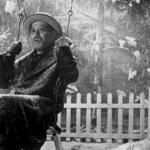Review of Out of the Furnace, Directed by Scott Cooper
One of film’s most compelling attributes is that it has the capacity to take us to new worlds—the fantastic, dystopian, historical, and the like. In this area, what seems at first to be a weakness of Out of the Furnace, the sophomore directing effort from Scott Cooper, turns out to be its greatest strength. With its mundane setting in small-town Appalachia, this simple film tells a surprisingly dark story with tender care.
Out of the Furnace drew me in with a slow dread—the dread that my life could very easily have been the life of Russell Baze, the film’s protagonist. Perhaps the most unimpressive character Christian Bale has played to date, Russell works a dead-end job at a steel mill, lives with his girlfriend—who he is presumably too poor to marry—and only socializes with the same half-dozen people at the bar around the corner.
The prospect of living out one’s entire life in a small town like this frightens me. Yet that is Russell’s world, and as one fated to live inside it, it’s all he can do to make ends meet, care for his aging family, and maintain the dignity of having a steady job. After a stint in prison for a DUI, he comes out to find that his girlfriend has left him and his father has passed away from health issues. There’s nothing for it but to go back to the mill. He has clearly made some mistakes, but overall we sense that he’s a decent guy, by no means deserving of the hardship thrust upon him.
Enter Russell’s brother Rodney (Casey Affleck), a still-young veteran of four tours in Iraq suddenly thrust back into his American home, complete with a gambling problem and dismal job prospects. Absent the honor and duty of military life, and unwilling to join Russell in the mill, Rodney falls into an underground fight ring to settle his debts. When he leaves town for one last fight, this time with a much more lucrative yet dangerous ring of New Jersey “inbreds,” he disappears. Satisfied with neither the vigor nor the results of the police investigation, Russell goes to find Rodney himself, taking justice into his hands in the dark underbelly of white America, where the locals do what’s right by them and no one else.
If we pity Russell’s humdrum existence, we’re repulsed by that of Harlan DeGroat (Woody Harrelson), the man identified in conjunction with Rodney’s disappearance. In the film’s opening scene, we find him at a drive-in movie, abusively stuffing a hot dog down the throat of the woman he’s with. When a man from the next car over intervenes, Harlan gets out of his car, beats the man to a pulp, and drives away, as people around the scene get out of their cars and look on dumbly.
It won’t be the last person he beats up in the film.
Indeed, in DeGroat we encounter a man who could not care less about other people, so much so that he has the bottom of his hands tattooed so that when he raises them (presumably to fight), they say “f***” and “you” respectively. He deals in money, drugs, and violence to an extent that goes beyond the archetype of the cinematic “baddie” to raw wickedness.
Though DeGroat falls to vigilante justice in the end, dying by the sword he lived by, Out of the Furnace leaves us with a bitter sense of incompletion. Everyone walks away either worse off than they were at the beginning of the film or dead, and we sense that the injustice will perpetuate, sapping the life out of everyone as their community decays.
Watching Out of the Furnace awoke in me the ever-humbling sense of “there but for the grace of God go I,” as I saw the only fundamental difference between myself and Russell, or worse, DeGroat, is the place I happened to be born. The film made this sentiment particularly powerful by presenting it in the context of a well-crafted story. As we peer into the life and times and Russell Baze, we remember that every life is a story, even those lived out in the untold and forgotten mundane. More profoundly, it shows that even the life lived in darkness, making its own justice, with redemption nowhere to be found, still matters. They grab our hearts because they’re a very real part of this world, and because we have a conscience pointing to the Last Day when all of these stories will be recounted in full.












